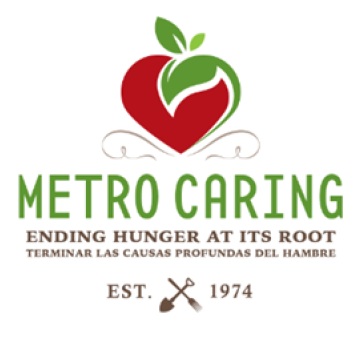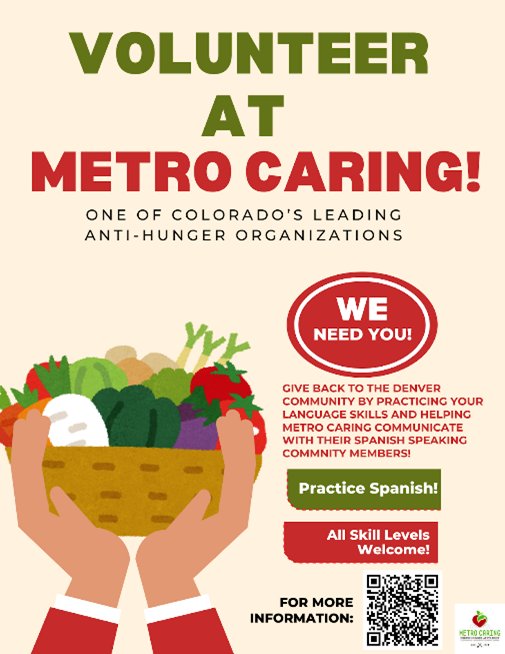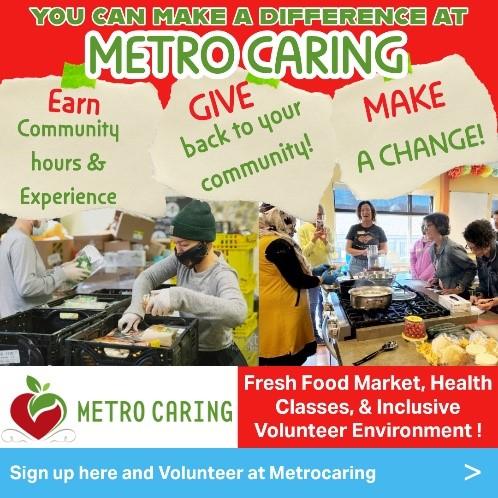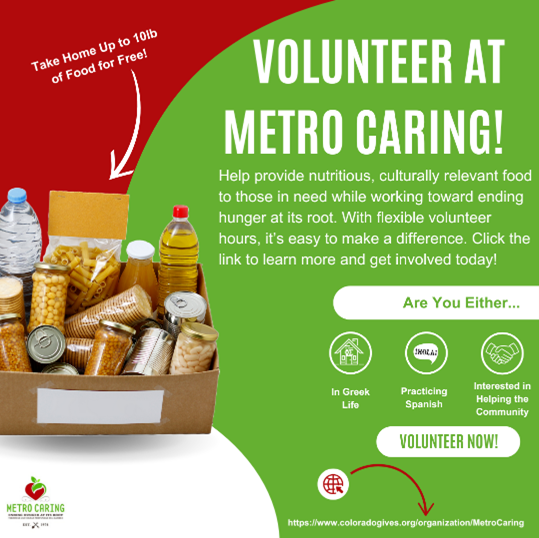Communication for Social Change
By: Youllee Kim, , Ph.D. | Assistant Professor, Department of Communication Studies

Communication for Social Change (COMM 3701) is designed to provide students with foundational knowledge and hands-on experience in designing and developing theory-driven, audience-relevant communication campaigns. The community partner for the course was Metro Caring, an anti-hunger organization in the Denver metro area. I began collaborating with Metro Caring in Fall 2023 when students in the course focused on designing fundraising campaign messages for the organization. Through this collaboration, we discovered that Metro Caring had a significant need for more volunteers. As a result, in Fall 2024, students shifted their focus to developing a volunteer recruitment campaign to help the organization meet its needs. Throughout the quarter, Beatrice Chavez, volunteer team manager at Metro Caring, worked with the students to help them understand the organization’s mission, their targeted audience, and the goals of their volunteer programs.
The course covered four different themes. During the first couple of weeks, the class sought to understand the issue of food insecurity, the community partner that we will be working with, and basic ideas of public communication campaign. Students not only watched and discussed the documentary Food Inc. to have an in-depth understanding of the nation’s food industry but also welcomed Beatrice as a guest speaker to learn more about the food insecurity in Denver and the various programs the Metro Caring runs to address food insecurity within the community (For more information about Metro Caring: https://www.metrocaring.org)
Both the second (audience analysis) and third themes (theory-based message design) of the course relate to designing communication campaign messages. The class discussed several fundamental research articles, learned about ethics of message design, and had an opportunity to volunteer at Metro Caring. Then, four different groups in class conducted their own audience analysis, which led to designing of the draft of volunteer recruitment messages.
During the final weeks of the quarter, students engaged with the fourth theme of the course, evaluation. Beatrice visited the class once again on a group presentation day to provide feedback for the fundraising messages students created. Each group also incorporated feedback from their target audience, classmates, and professor before they shared the final messages with Metro Caring. Several students shared valuable knowledge and insights they gained from working with a community partner through this course.
The following are some examples of the positive feedback students shared about their experience in the course.
"I appreciate how in-depth this course goes in order to first understand the disparities in food accessibility (specifically healthy foods) and the communities primarily affected, before working with our community partner. Learning about food insecurity added a layer of deep-rooted understanding of the impact Metro Caring has. By learning about this in school, we are not just volunteering for short-term moral reward but using our education and privilege to design and spread volunteer recruitment messages for Metro Caring to hopefully amplify and aid food insecurity in the Denver metro area." Siri Beck (Communication Studies major)
"Upon reflecting on the volunteer recruitment messages I designed for this class, I believe the most important lesson regarding community engagement is understanding not only what the community needs but also what the community wants. We spoke in class about the importance of knowing a community’s context—its culture and values are crucial in creating campaigns that yield the desired results. This understanding is also important for my future career, where I hope to work closely with communities to help them sustain their local environment through education and resource management. Knowing how to learn about these communities and craft messages that align with their values and beliefs will be instrumental in creating campaigns that help everyone." Gio Drake (Environmental Science major)
"This class has influenced my understanding of volunteer recruitment and community engagement in numerous ways. Before class, I perceived volunteer recruitment in a very rudimentary way, without understanding the complexities involved. More specifically, I didn’t understand what went into a well-developed volunteer recruitment message, such as audience analysis and the multi-faceted approach to campaign evaluation. These concepts also play into my current understanding of community engagement. Before taking this course, my understanding of the complexities involved in promoting community engagement was lacking. I now realize that learning about these concepts together was far more beneficial than learning about them independently." Stella Olson (Communication Studies major)



